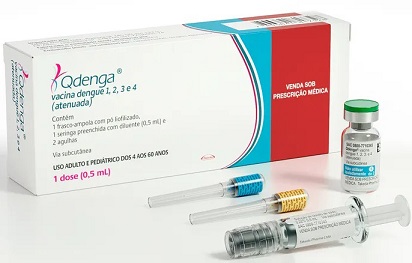Overview of Dengue Fever

Dengue fever, an epidemic disease, is triggered by the dengue virus transmitted through the Aedes egypti mosquito vector. Individuals bitten by an infected mosquito are susceptible to contracting dengue fever. The virus exists in four strains—dengue strains 1, 2, 3, and 4—all capable of causing the fever. Consequently, individuals can be infected with the dengue virus multiple times.
Indicators and manifestations of dengue fever deserving attention.
Dengue fever is primarily transmitted through the Aedes mosquitoes, serving as the primary vector for human-to-human transmission. Following a bite from an infected mosquito, symptoms of dengue fever typically manifest within an approximate period of 3 to 8 days. These symptoms include:
- Persistent high fever
- Appearance of a red rash or petechiae on the skin
- Headaches
- Muscular and skeletal discomfort, including body aches and bone pain
- Loss of appetite, accompanied by feelings of nausea and vomiting
- Right upper quadrant abdominal pain
In severe cases, individuals may experience abnormal bleeding and signs of shock.
Consequently, vaccination is recommended for all individuals, irrespective of prior infection history.
Dengue Vaccine ( Qdenga)
The Qdenga vaccine is a novel immunization designed to prevent dengue fever. It constitutes a live attenuated vaccine developed through a technological process involving the incorporation of genetic components from all four strains of the dengue virus into the core of the virus itself. Functioning by inducing replication of a weakened virus, this vaccine prompts the body to generate immunity against the dengue virus responsible for dengue fever.

Effectiveness:
- Prevents dengue fever by 80.2%**
- Reduce hospital stays by 90.4%
- Prevents severe dengue fever by 85.9%.
Administration Guidelines:
This vaccine is suitable for individuals aged 4 to 60 years, including parents.
Dosage:
The vaccine regimen consists of two injections, administered three months apart.
**This vaccine does not necessitate a serological test to ascertain previous infection status. It can be administered promptly without delay.
